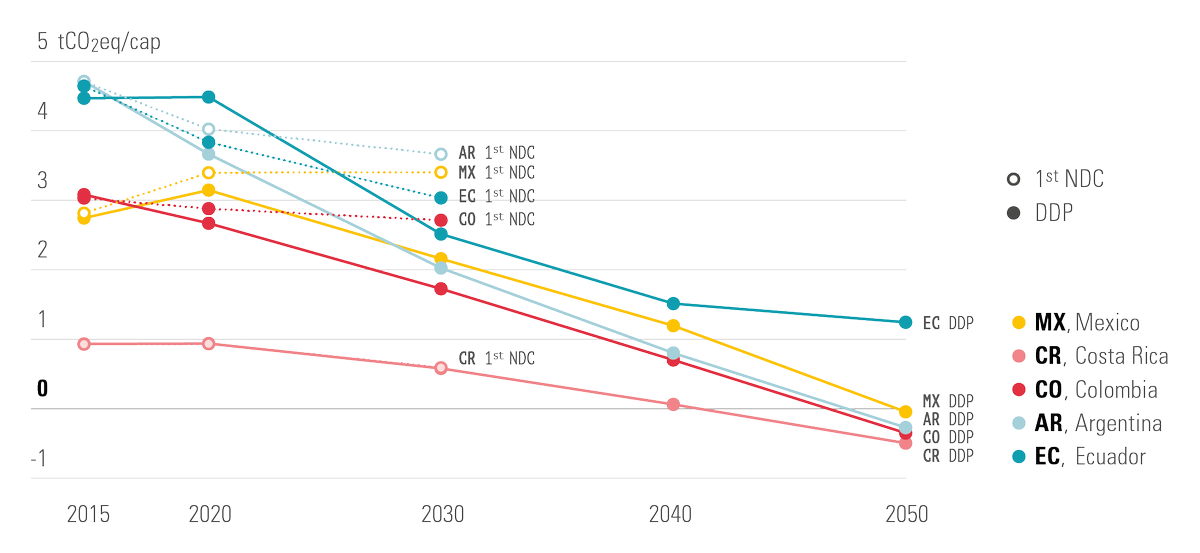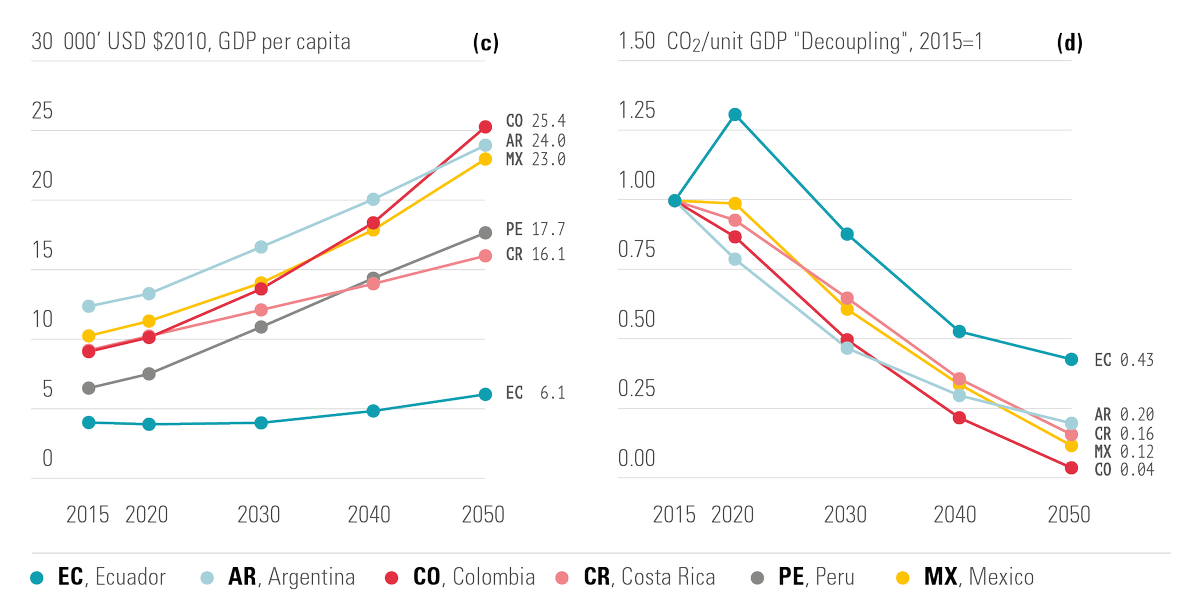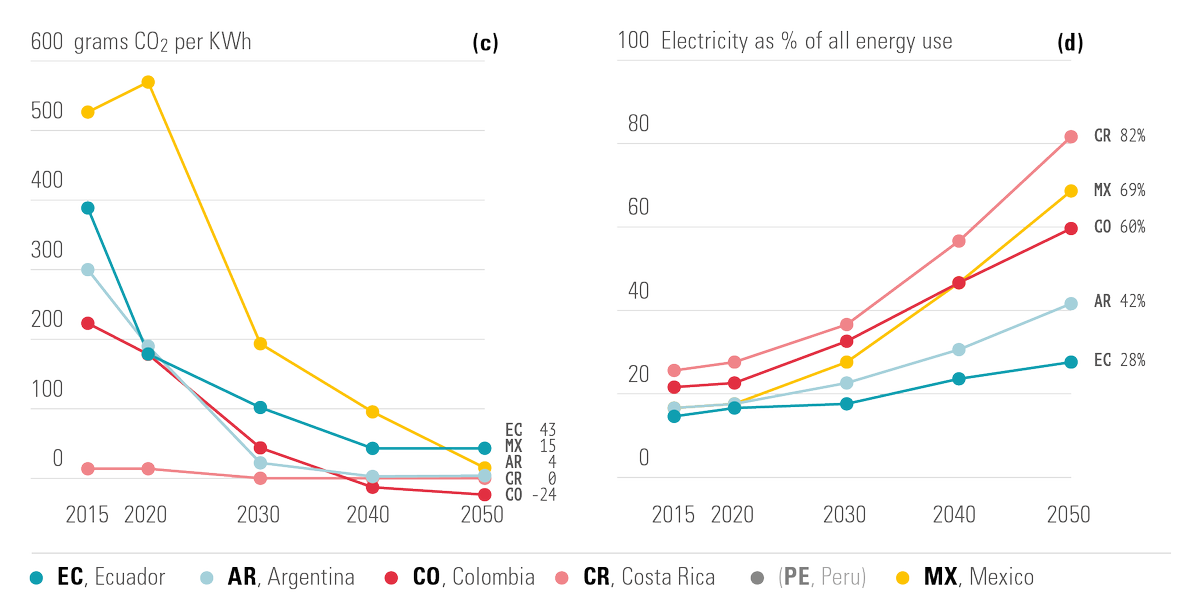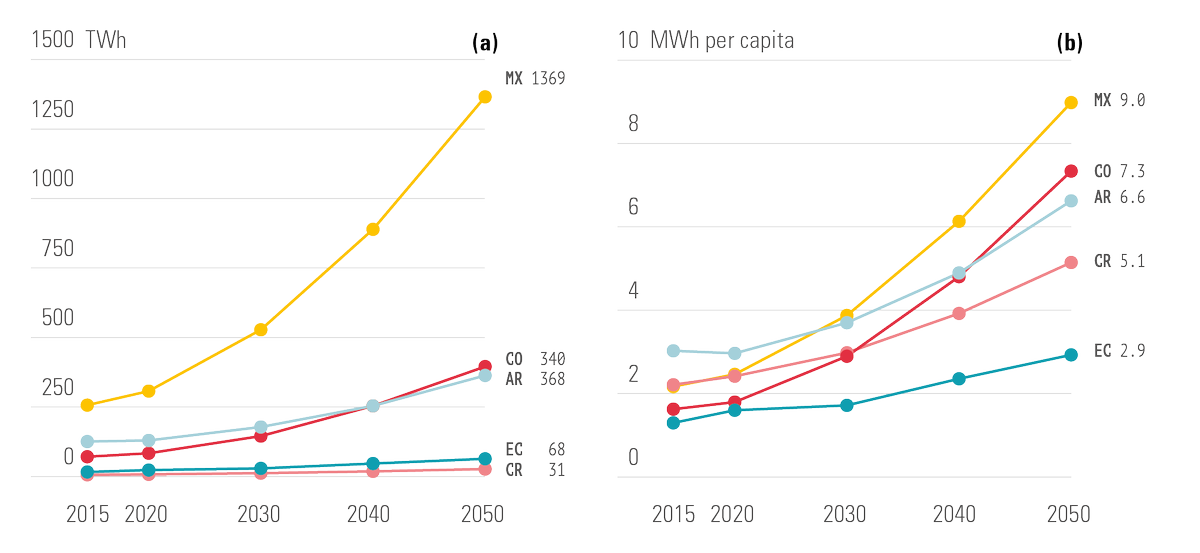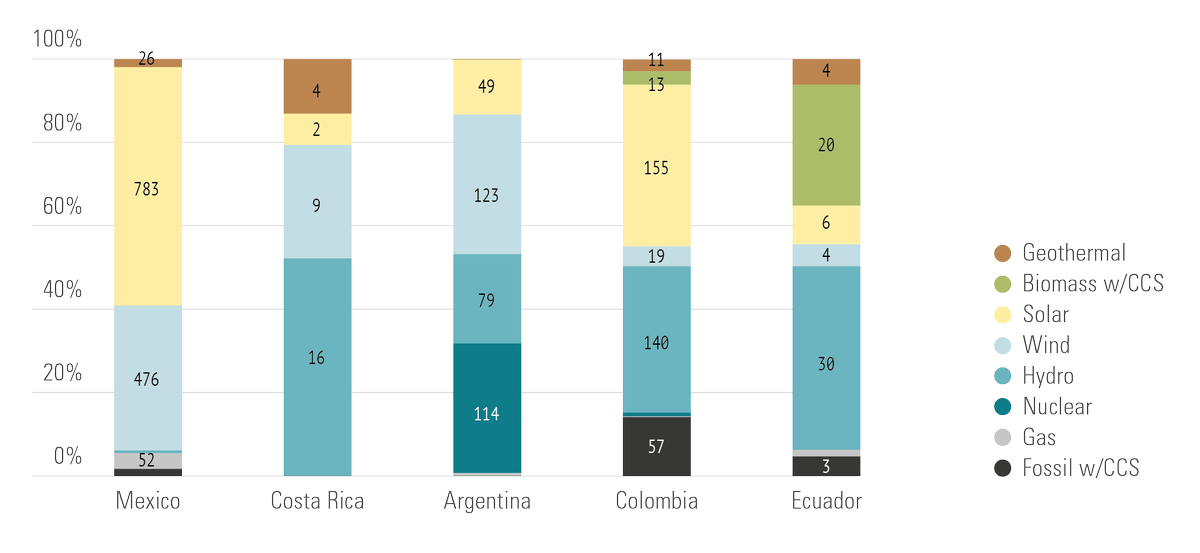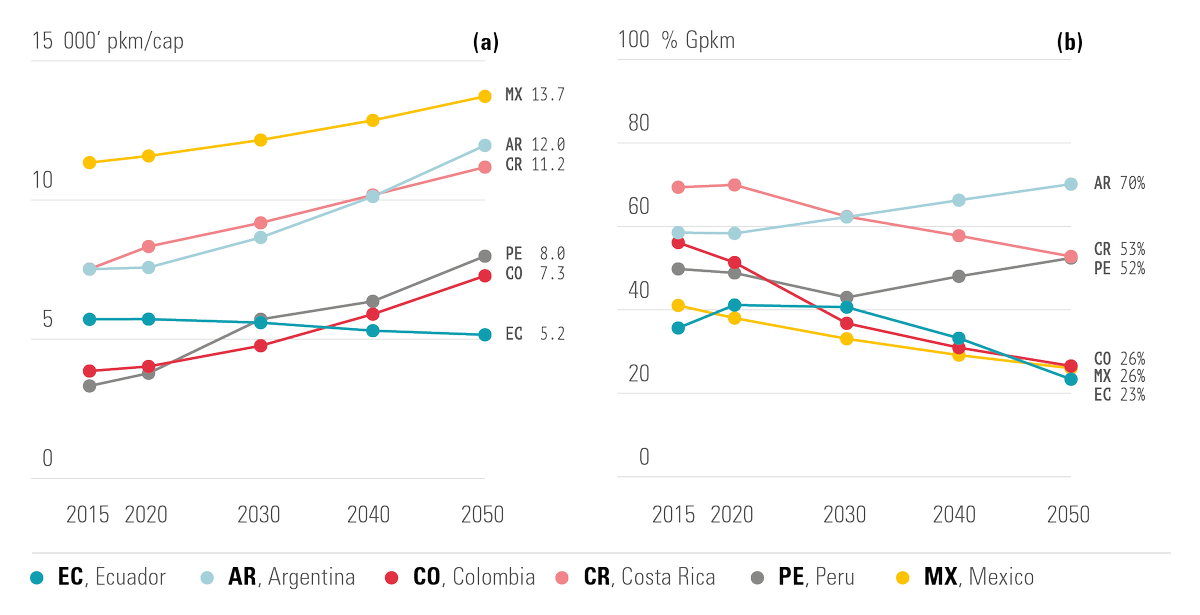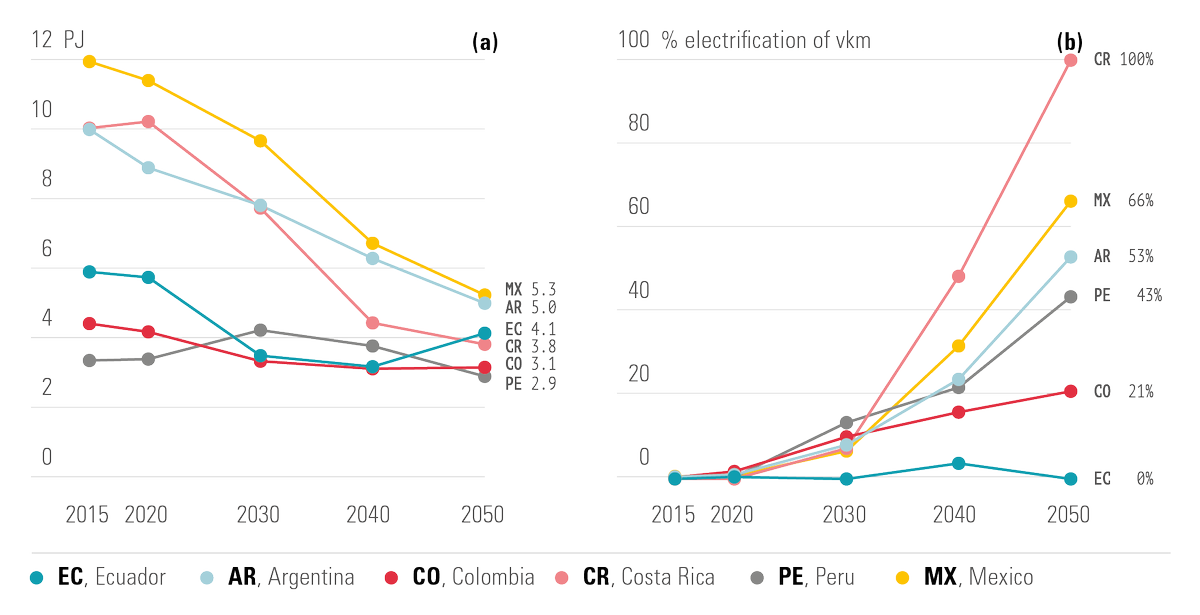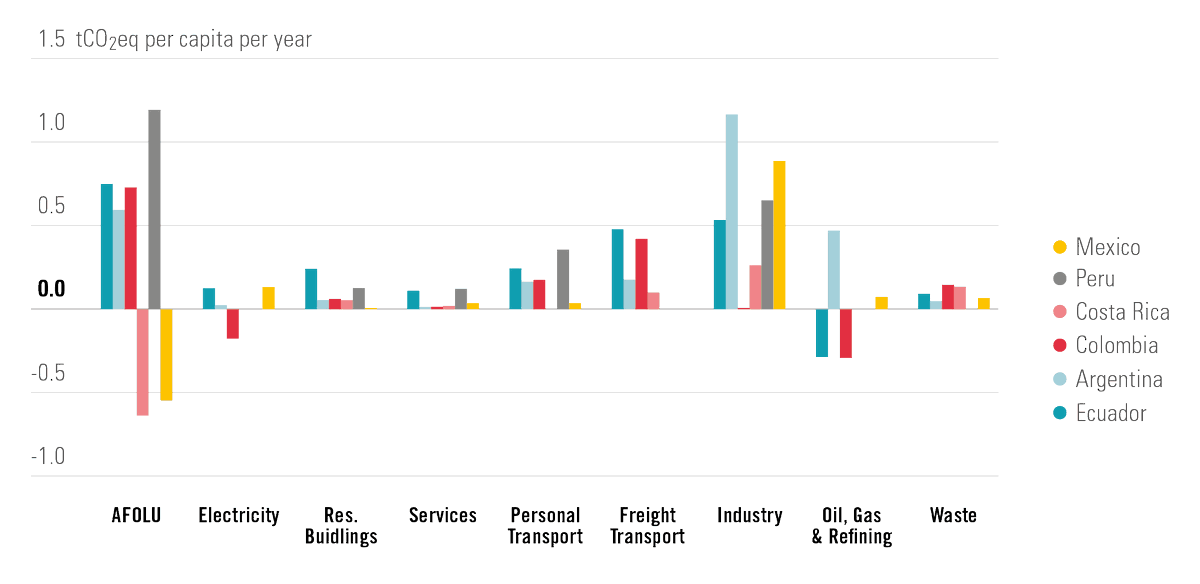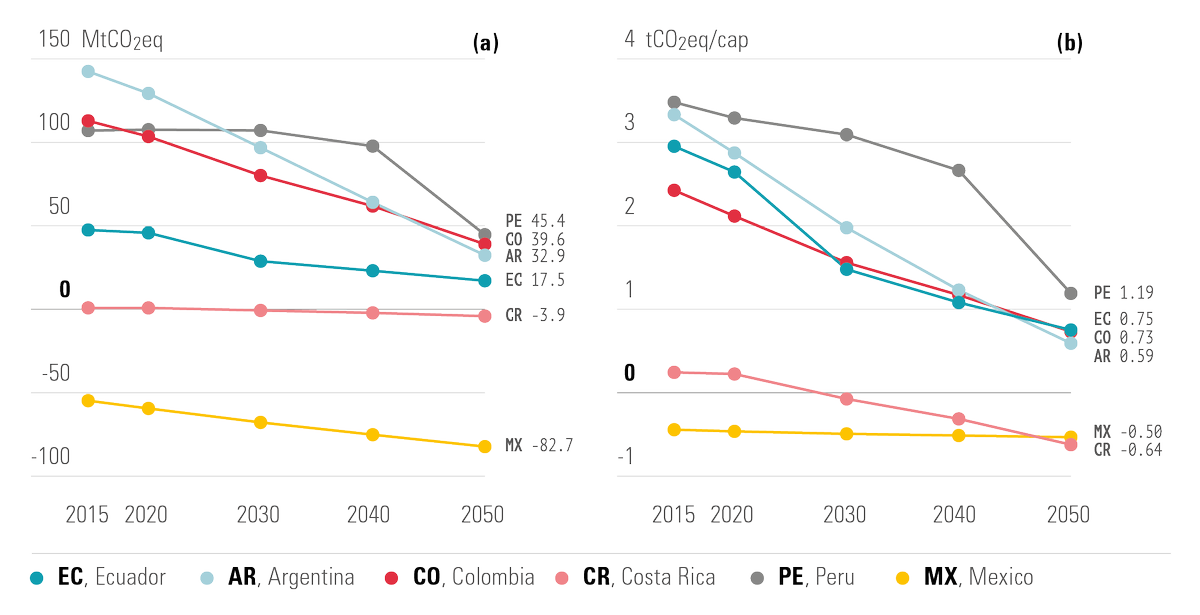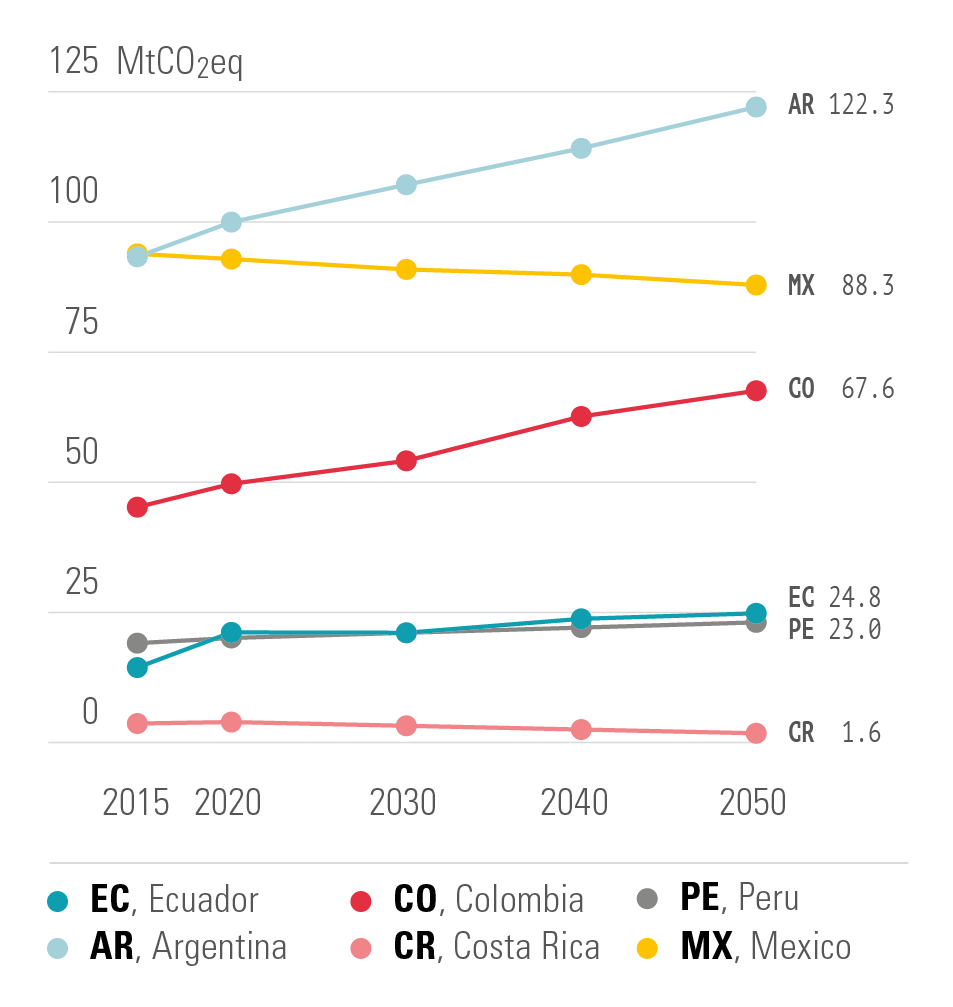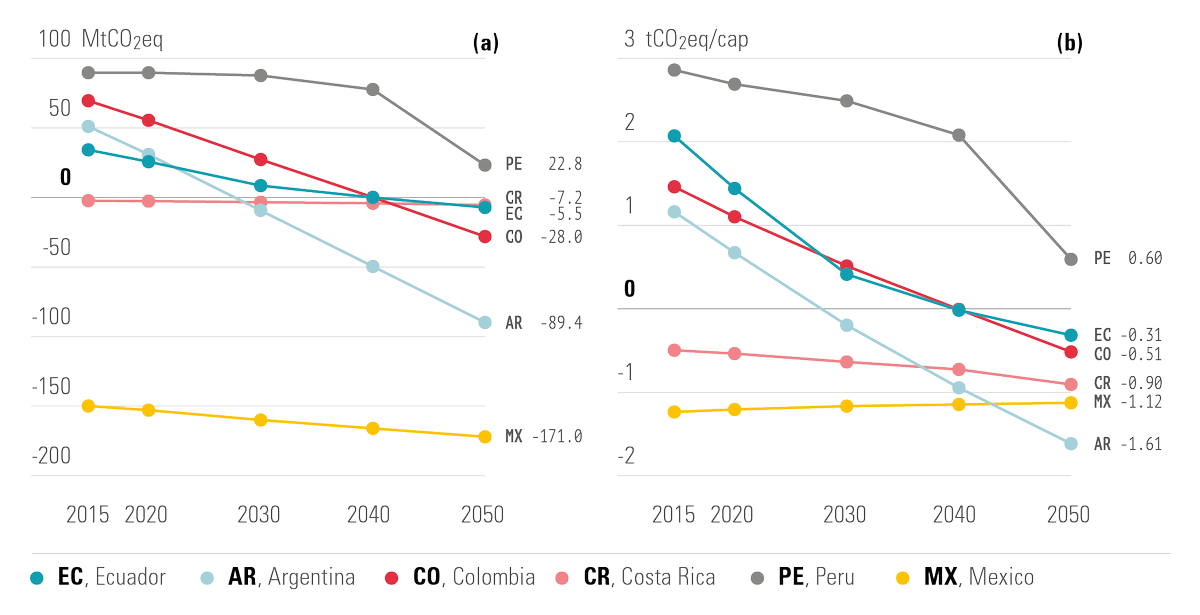New! "Net-zero deep decarbonization pathways in Latin America", our open access synthesis paper from our ESR special issue on the DDP-LAC project https://www.sciencedirect.com/science/article/pii/S2211467X20300638, initiated & funded by @the_IDB, supported by @AFD_en & @2050Platform, & managed by @IDDRI_ThinkTank Thread

First, here's the link to @the_IDB 's December 2019 "Getting to Net-Zero Emissions: Lessons from Latin America and the Caribbean" https://publications.iadb.org/en/getting-net-zero-emissions-lessons-latin-america-and-caribbean, the first communication from DDP-LAC.
It has become a truism that existing Nationally Determined Contributions to the Paris Agreement are insufficient, and have to be ratcheted. The PA's Long Term Strategies were meant to enable this, but to do so they need to be as explicit as possible about who does what when.
What might Paris compliant LTSs, or Deep Decarbonization Pathways, look like in Latin America? What do we know, what don't we know? First and foremost, strong decoupling of GHGs & GDP was seen in all our teams' scenarios, & LAC is better off in 2050, premised on macro stability.
This GHG/GDP decoupling is critically enabled by decarbonization and ramping up of electricity supply to allow electrification of residences, services, personal transport and light industry
Passenger transport required several strategies. Overall kilometers travelled increased while individual vehicle mobility falls in most countries, motivated largely by mode shifting away from personal vehicles to urban and intercity bus electrification.
Overall energy use for personal transport falls due to electrification driven efficiency improvements, with the various teams adopting varying levels of sub-transport sector electrification depending on assumptions about global technological costs
Here's the fun part (for me); the remaining emissions in 2050, dominated by our now standard "hard to transition" sectors: AFOLU, freight, and heavy industry. This helps set the (my?  ) research agenda going forward.
) research agenda going forward.
 ) research agenda going forward.
) research agenda going forward.
Agriculture Forestry and Land Use is challenging due to land political economy issues (e.g. tenure, enforcement, food & export needs). While tightly related, A & FOLU GHGs issues are different: crop types & fertilization on one hand, & deforestation vs. afforestation on the other
Most of the team DDP results showed a common pattern - sustainable (low fertilizer intensity) agricultural intensification and modified practises, allowing less deforestation and some commercial afforestation, all leading to less emissions. First fig shows all AFOLU emissions ...
While agriculture emissions are relatively stable, with growing output but falling fertilizer intensity and modified cropping methods ...
Forestry & Land Use goes very negative for some countries, based on reduced deforestation & afforestation. For this to happen, however, incentive structures are needed for the LAC countries to realize their large CO2 negative emissions potential both for themselves and the world.
There are remaining oil & gas emissions, but not nearly as many as today. Some teams experimented with in(ex)clusion of new O&G (e.g. Argentina's Vaca Muerta), but to be viable stringent CCS & fugitives control is necessary. There are also revenue impacts. https://bit.ly/2N3VcbR
Deep decarbonization in LAC requires domestic policy & global enabling conditions; a report focused on this is in the works. Papers are under review by the Argentinian, Colombian, Costa Rican, Ecuadorian, Mexican & Peruvians teams on their scenarios, & I will post them when ready
Finally, thank you to all the teams and their mentors for their Herculean efforts. While some had models to start, some went from scratch all the way to energy system and AFOLU NDC and multiple DDP scenarios under very challenging conditions, made harder by COVID. Kudos to all 

Also, thanks to @st_pye who first got me interested in the ways and means of doing DDPs for developing countries https://www.tandfonline.com/doi/abs/10.1080/14693062.2016.1173004
How odd; all the .png figures are in “dark mode”. Not the way I set it up, but oh well, here’s the main link again with the proper figures https://www.sciencedirect.com/science/article/pii/S2211467X20300638

 Read on Twitter
Read on Twitter